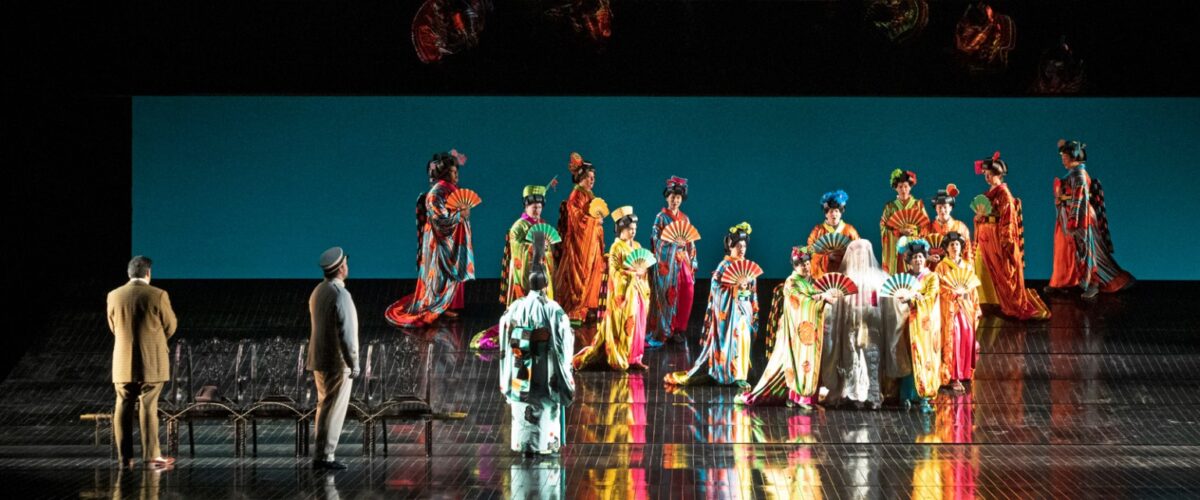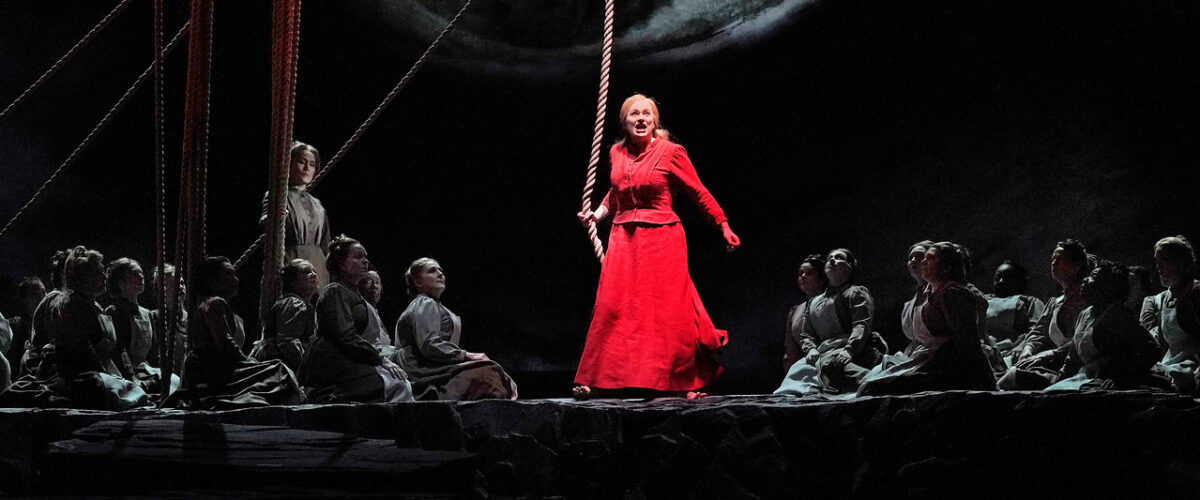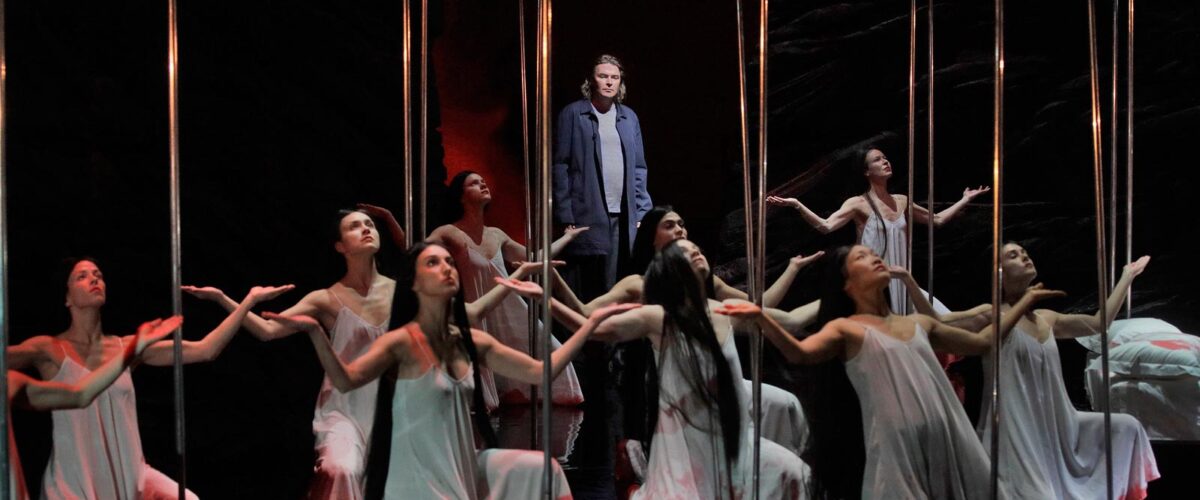TRANSCRIPT
Scofield: Now in your director’s notes for the production, you mentioned that Kawabata has commented the truth involves discarding of words. And in fact, the character of Oki is entirely mute, neither sings, nor speaks, but I think is only represented by some music, a cello, I believe, is that right?
Choa: We decided to have an actor play this very central important role, and that it was a fun idea to allow this to be a silent part, and I’ve really enjoyed working with this idea. It’s not really for the reason of what you just said about Kawabata. I think, in general, his works have been called works of emptiness, and himself, a master of the unsaid thing, he’s also compared his own work to haikus. I think that is just his mastery is really in offering the reader rich and complex human situations and emotions without overstating it. I think that’s what he does in all his works. And in some way, Beauty and Sadness, they’re probably not one of the better-known works, is a really mature piece in the sense that it contains all his recurrent themes, but it’s probably the most distilled work of his.
Scofield: The most distilled of what?
Choa: In the sense that the book is quite short, but if you look at what he talks about within this short space, I feel that every word, everything is so carefully chosen there’s no accident anywhere in the book. Everything he’s thought about to the last detail and everything is meaningful. There’s nothing spare, let’s say, in this book. It’s my opinion, although I can’t read it in the Japanese very sadly, and I had to read it in English and Chinese to try to get as much of a comprehensive understanding of the novel. One of our cast is fluent Japanese speaking, in fact, it’s our actor Anson Lam. He spent nine years in Japan. And he tells me that Kawabata’s style is very uniquely beautiful, and very hard to capture absolutely in translation. But I think, always, in any translation from any language, there’s always a little bit of something lost perhaps. Maybe the next step is to learn Japanese.
Scofield: Or perhaps something gained in the beautiful music that your composer Elena Langer has written, part of a very high-powered creative team that you assembled for the project, including her and David Pountney, very famous British opera director, who is the librettist for the project. So, perhaps by adding a musical dimension of this it will bring new things out of the Kawabata that even readers of Japanese didn’t experience before.
Choa: I suppose, as I said before, I feel that the fact that so much of what he communicates is not exactly in the words, in the language, that this gives us a chance to explore the kind of underlying meanings of it in music and dance. Elena is a very wonderful composer to work with. When I was looking for someone, I really was trying to find someone who has an emotional dimension to their work, which she certainly does. She’s also really masterful in her use of rhythm. She’s very sophisticated in that sense. I love myself; I love percussion and everything to do with rhythm. I think she’s got that Stravinsky thing going and she’s really written us a wonderful piece.
Read more about Carolyn Choa on their OFFICIAL WEBSITE.




